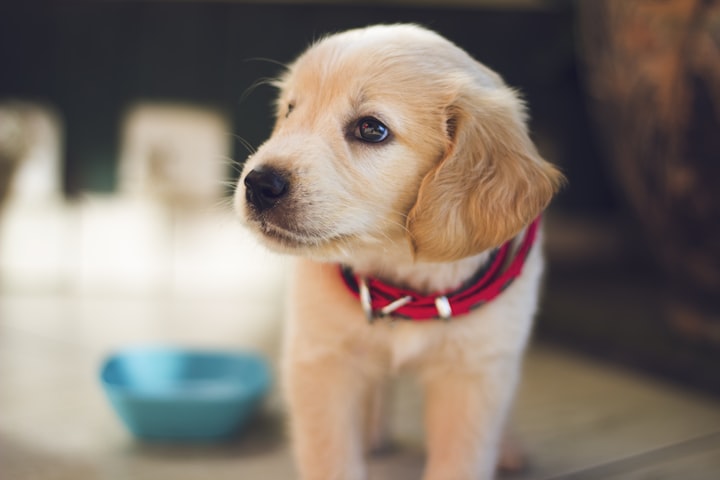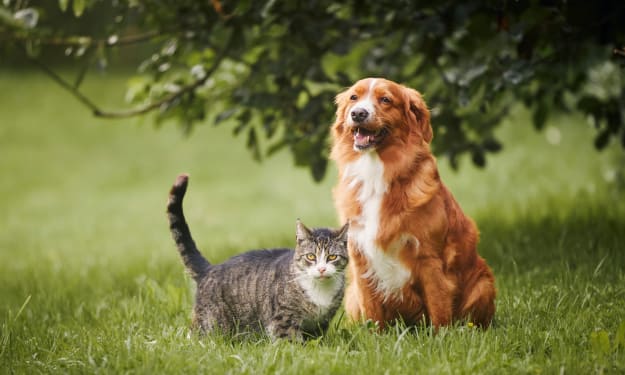Unleashing the Secrets Behind Puppy Training - Why It Can Be So Hard!
Have you ever wondered why puppy training can be so difficult? You're not alone! Puppy training is a challenge for many pet owners, and for good reason. Training a puppy requires patience, consistency, and lots of love. But it doesn't have to be as hard as you think. In this blog, I'll be going over the secrets behind puppy training and why it can be so hard. I'll also be sharing tips and best practices to make puppy training much easier and more enjoyable for both you and your pup.

Introduction to Puppy Training
Puppy training is the process of teaching your puppy to behave in a manner that is acceptable in human society. This includes teaching them basic commands like sit, stay, come, and down; as well as more complex behaviors like using the bathroom outdoors and not chewing on furniture. Training a puppy is an important part of responsible pet ownership, and can help ensure that your pup grows into a happy and well-adjusted adult dog.
A book to help us more about puppy training click here 😊
Puppy training is not just about teaching your pup good manners, though. It's also an important bonding experience for you and your pup. The more time you spend together training, the stronger your bond will be. And, of course, the more successful your training sessions will be.
Common Puppy Training Challenges
Puppy training can be a challenge for many pet owners, and there are several common issues that can make it difficult. One of the biggest challenges is that puppies have short attention spans, so it can be hard to keep them focused on the task at hand. Puppies also have a lot of energy and can easily become distracted. This means that you have to be extra patient and consistent when training your pup.
Another challenge is that puppies are still learning and developing, so they may not understand what you're asking of them. This means that you may have to repeat the same lessons several times before your pup catches on. Additionally, puppies can have a lot of energy, so it can be hard to keep them from getting too excited during training sessions.
Making Puppy Training Easier
Puppy training doesn't have to be a chore. In fact, it can be a fun and rewarding experience for both you and your pup. The key to successful puppy training is to keep it positive, consistent, and fun. Here are a few tips to make puppy training easier:
Use positive reinforcement. Praise and rewards are essential for successful puppy training. Whenever your pup does something right, be sure to give them plenty of verbal praise and a tasty treat.
Use short, simple commands. Puppies have short attention spans, so keep your commands short and to the point. This will help ensure that your pup understands what you're asking of them.
Keep it consistent. Consistency is key when it comes to puppy training. Make sure to stick to the same commands and rewards, and never give in to bad behavior.
Keep it fun. Puppy training should be a fun and positive experience for both you and your pup. Use plenty of treats and verbal praise, and make sure to take plenty of breaks.
Tips for Every Puppy Training Stage
Puppy training is a process, and it can take some time for your pup to learn the basics. Here are a few tips for every puppy training stage:
Start with basic commands. The first step to successful puppy training is to teach your pup the basics. Start by teaching them simple commands like sit, stay, come, and down.
Use crate training. Crate training is an effective way to teach your pup to hold their bladder and not chew on furniture. Make sure to use the crate only for short periods of time and always use positive reinforcement.
Practice the basics. Once your pup has mastered the basics, it's important to keep practicing them. Set aside a few minutes each day to practice the commands you've taught your pup.
Socialize your pup. Socialization is an important part of puppy training. Make sure to introduce your pup to new people and animals regularly.
Potential Puppy Training Roadblocks
Even with the best intentions and the most effective techniques, there may come a time when puppy training doesn't seem to be going as planned. Here are a few potential roadblocks to look out for:
Lack of consistency. Consistency is key when it comes to puppy training. If you're not consistent with your commands and rewards, your pup won't understand what you're asking of them.
Too much excitement. Puppies have a lot of energy and can easily become over-excited. If your pup is too excited during training sessions, it can be hard to keep them focused.
Too much punishment. Punishment should never be used in puppy training. Not only is punishment ineffective, but it can also be damaging to your pup's trust and bond with you.
Solutions to Common Puppy Training Problems
If you're having trouble with puppy training, don't worry - there are solutions to common problems. Here are a few tips to help you get back on track:
Be patient. Puppy training is a process, and it doesn't happen overnight. Be patient and consistent, and don't give up if your pup doesn't understand something right away.
Use positive reinforcement. Positive reinforcement is the key to successful puppy training. Use treats and verbal praise to reward good behavior and discourage bad behavior.
Take breaks. If your pup is having trouble focusing, take a break and come back to it later. Taking a break can help your pup reset and come back to the training session with a fresh mind.
Seek professional help. If you're having trouble with puppy training, don't be afraid to seek professional help. A professional trainer can help you identify and address any issues you're having with your pup.
Understanding Your Puppy’s Behavior
Puppy training isn't just about teaching your pup commands - it's also about understanding their behavior. It's important to pay attention to your pup's body language and vocalizations so you can understand what they're trying to tell you.
For example, if your pup is yawning and looking away, they may be feeling overwhelmed and need a break. If they're barking or digging, they may be trying to tell you that they need to go outside. Paying attention to your pup's behavior can help you understand their needs and adjust your training accordingly.
Best Practices for Puppy Training
The most important thing to remember when puppy training is to keep it positive, consistent, and fun. Here are a few best practices to keep in mind:
Focus on positive reinforcement. Positive reinforcement is essential for successful puppy training. Use treats and verbal praise to reward good behavior and discourage bad behavior.
Be consistent. Consistency is key when it comes to training your pup. Stick to the same commands and rewards, and never give in to bad behavior.
Keep it fun. Puppy training should be a fun and positive experience for both you and your pup. Use plenty of treats and verbal praise, and make sure to take plenty of breaks.
Seek professional help. If you're having trouble with puppy training, don't be afraid to seek professional help. A professional trainer can help you identify and address any issues you're having with your pup.
Puppy Training Resources
There are plenty of resources available for pet owners looking for help with puppy training. Here are a few of my favorite resources:
Dog Training Basics: This website offers tips and tricks for puppy training, as well as advice on common puppy behavior issues.
The Dog Trainer: The Dog Trainer is a blog run by professional dog trainer, Sarah Hodgson. She offers advice on puppy training and tips on how to understand your pup's behavior.
Dog Training Revolution: Dog Training Revolution is a book by professional dog trainer, Victoria Stilwell. The book covers everything from basic obedience to more advanced training techniques.
Doggy Dan's Online Dog Trainer: Doggy Dan's Online Dog Trainer is an online course that covers all aspects of puppy training. The course is led by professional dog trainer, Doggy Dan, and is designed to help pet owners become better trainers.
Conclusion
Puppy training can be a challenge for many pet owners, but it doesn't have to be. By following the tips and best practices outlined in this blog, you can make puppy training easier and much more enjoyable for both you and your pup. Remember to stay positive, consistent, and patient, and never give in to bad behavior. With a little bit of effort and lots of love, you'll have a well-trained pup in no time!





Comments
There are no comments for this story
Be the first to respond and start the conversation.